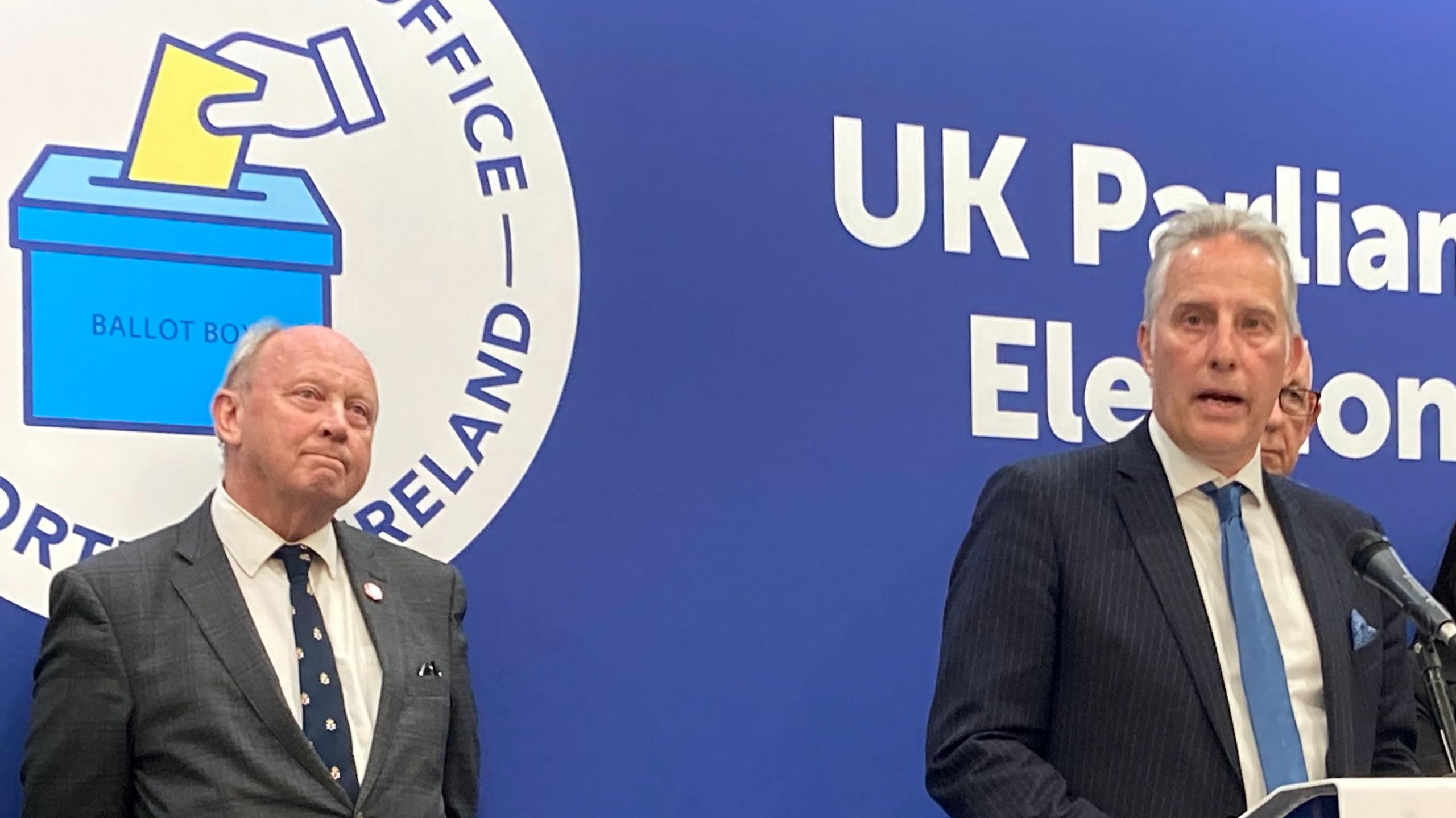Sinn Féin's historic hat-trick and DUP shockwaves
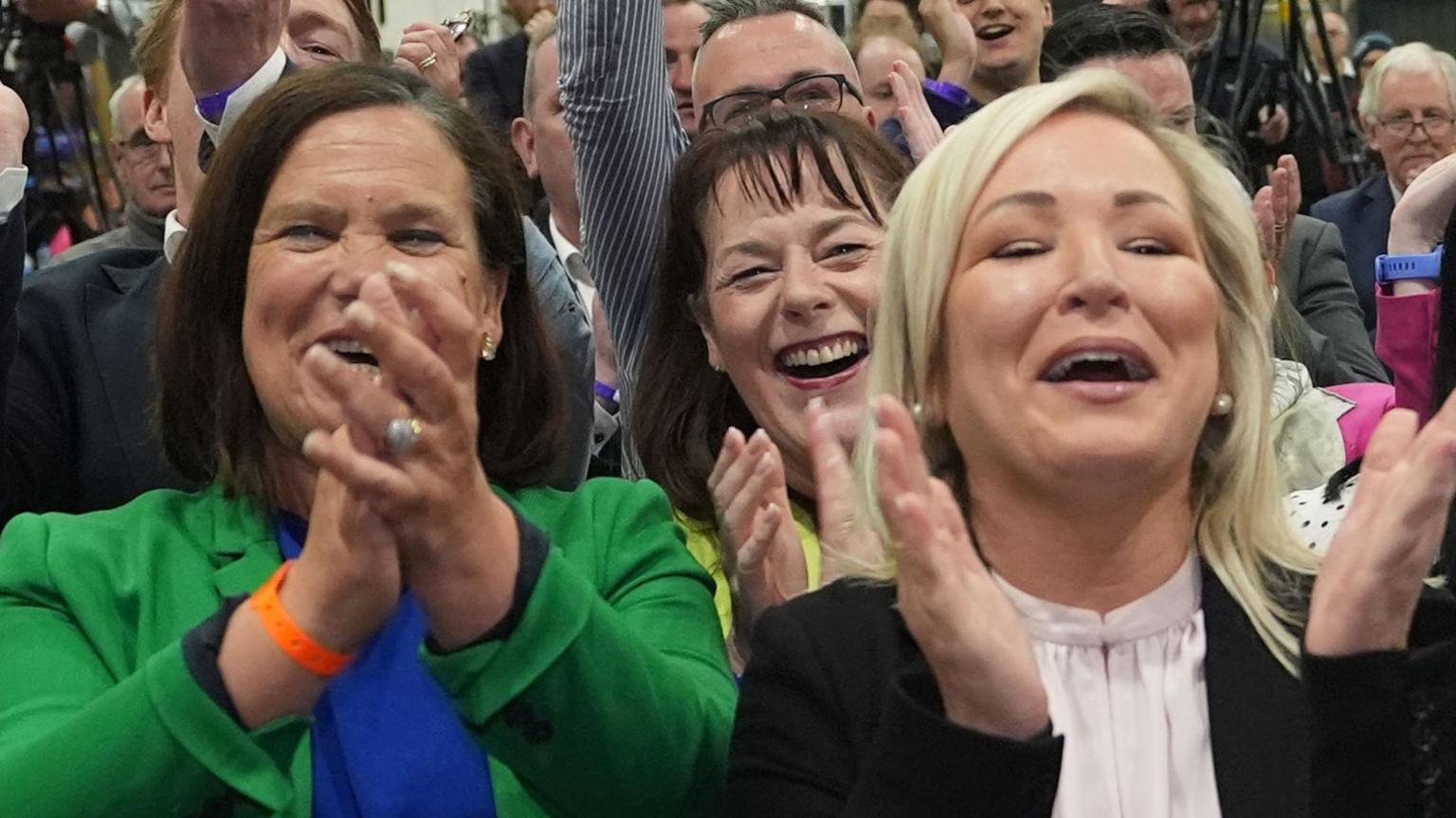
Party president Mary-Lou McDonald joined Michelle O'Neill at the count centre in Magherafelt
- Published
By a landslide this UK general election has been Labour's moment, but Northern Ireland has had its own political earthquakes.
Sinn Féin was the runaway success, completing a historic hat-trick for Irish nationalism.
For the first time it is now Northern Ireland's largest party at Westminster, at Stormont and at local government level.
The party retained its seven seats and upped its vote share compared to the last general election in 2019.
But Sinn Féin has always held a policy of abstentionism when it comes to the House of Commons and will not sit in the chamber.
The Democratic Unionist Party (DUP), which propped up the Conservative government after the 2017 election with its 10 seats, dropped to second place in a deeply bruising performance.
It was widely expected to come under pressure after years of unionist divisions and disillusionment over the outworkings of Brexit.
But few predicted the party would lose as many as three seats.
Fall of the 'house of Paisley'
The single biggest shockwave was the fall of the 'house of Paisley'.
For 54 years North Antrim has been their family dynasty and synonymous with the DUP.
Its founder Rev Ian Paisley held the seat from 1970 and was succeeded in 2010 by his son, Ian Paisley Jnr.
But now the seat is in the hands of his arch rival, Traditional Unionist Voice (TUV) leader Jim Allister.
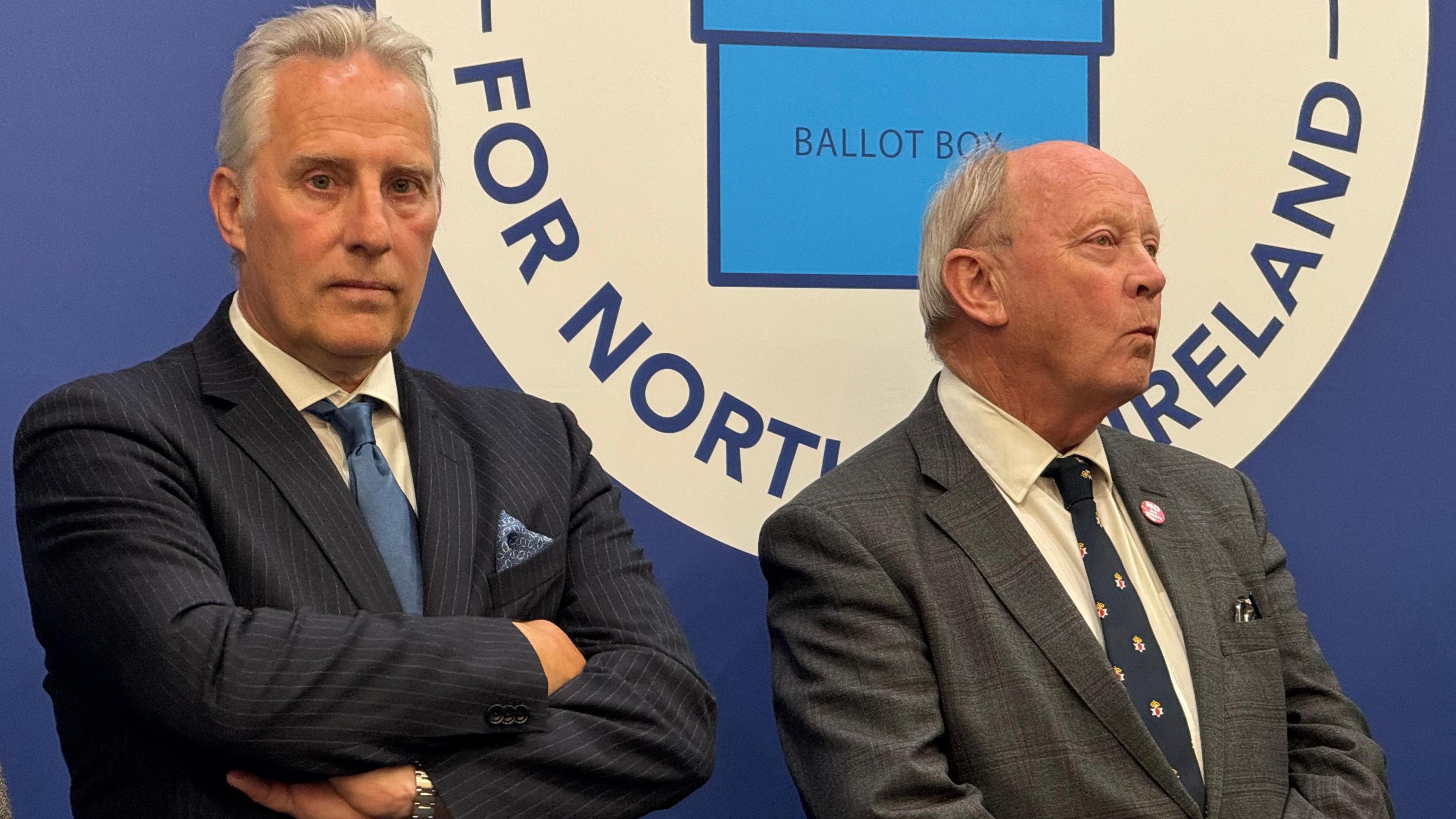
TUV leader Jim Allister (right) took the North Antrim seat from Ian Paisley Jnr of the DUP
The party lost two further seats including Lagan Valley, which former DUP leader Sir Jeffrey Donaldson had held for 27 years.
And East Londonderry - usually considered a safe DUP seat - was forced to a recount. Gregory Campbell fended off Sinn Féín by a margin of just 179 votes.
In 2019 his majority was just shy of 10,000 votes.
Only DUP leader Gavin Robinson holding Belfast East prevented a damaging election turning into a full-blown crisis.
The party came under pressure from multiple sides, shedding votes to more liberal and hard line unionist rivals as well as the Alliance Party.
Jim Allister heading to Commons
It has undoubtedly been a good election for Mr Allister, whose campaign criticised the DUP's deal in February to restore Stormont power-sharing.
Just months ago the DUP dismissed him as a "dead end unionist". Now for the first time, he will be heading to Westminster.
On the green benches he's likely to sit alongside Nigel Farage.
Under the leadership of Richard Tice, Reform UK and the TUV entered into an electoral alliance, but that was later called into question when Mr Farage gave his DUP "beer buddies" Ian Paisley and Sammy Wilson his personal endorsement.
The Ulster Unionist Party (UUP) will also be celebrating after securing its first member of Parliament in seven years.
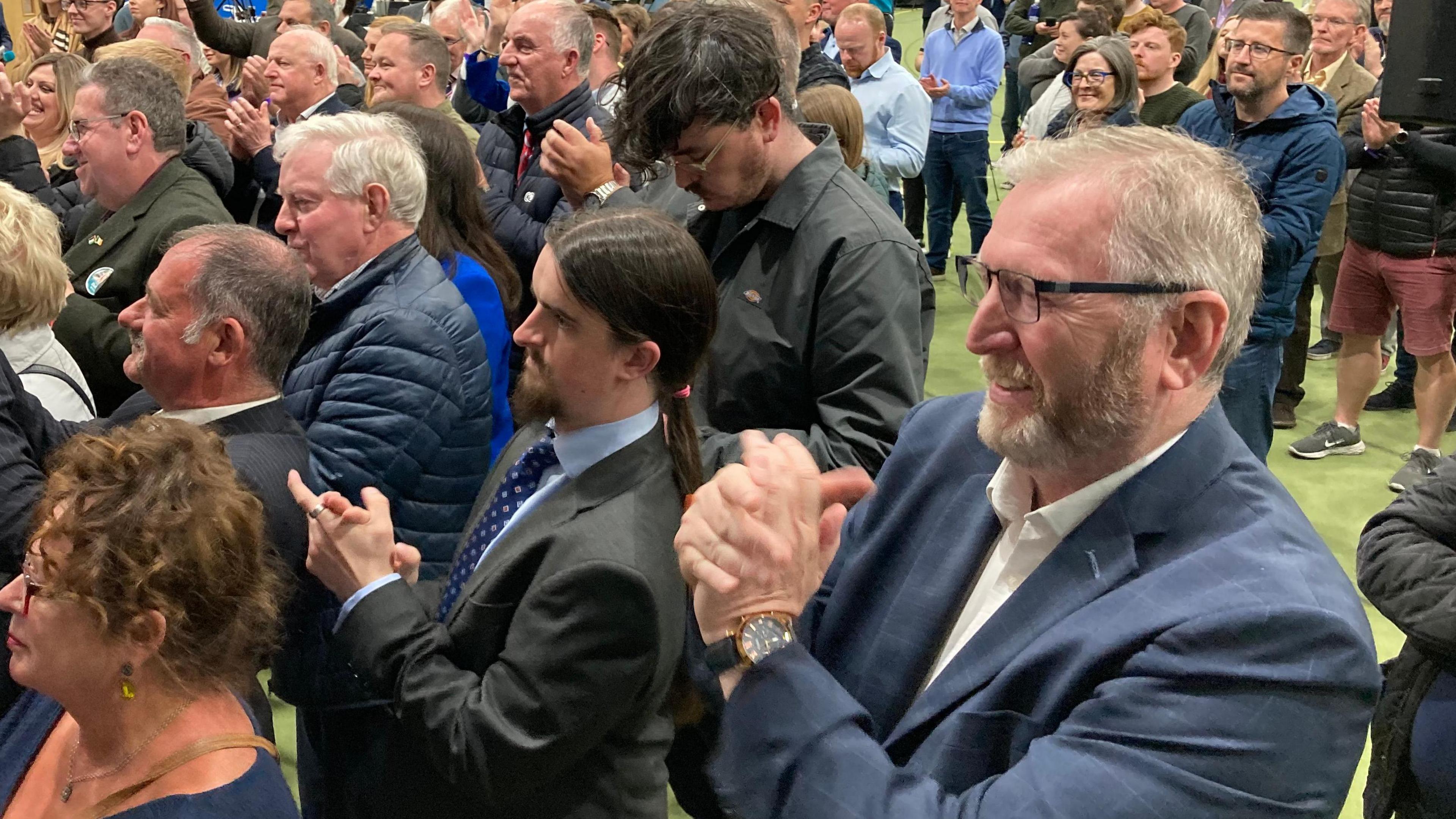
UUP leader Doug Beattie (right) celebrates Robin Swann's election in South Antrim
For Robin Swann, who switched constituencies and stepped down as Stormont health minister to contest South Antrim, the gamble paid off.
It was a much-needed win for UUP leader Doug Beattie, as some party members had been questioning whether his "shrink to grow" strategy would ever enter the "grow" phase.
There were mixed fortunes for the Alliance Party.
Sorcha Eastwood securing Lagan Valley offset the party's disappointment over deputy leader Stephen Farry losing North Down to independent unionist Alex Easton.
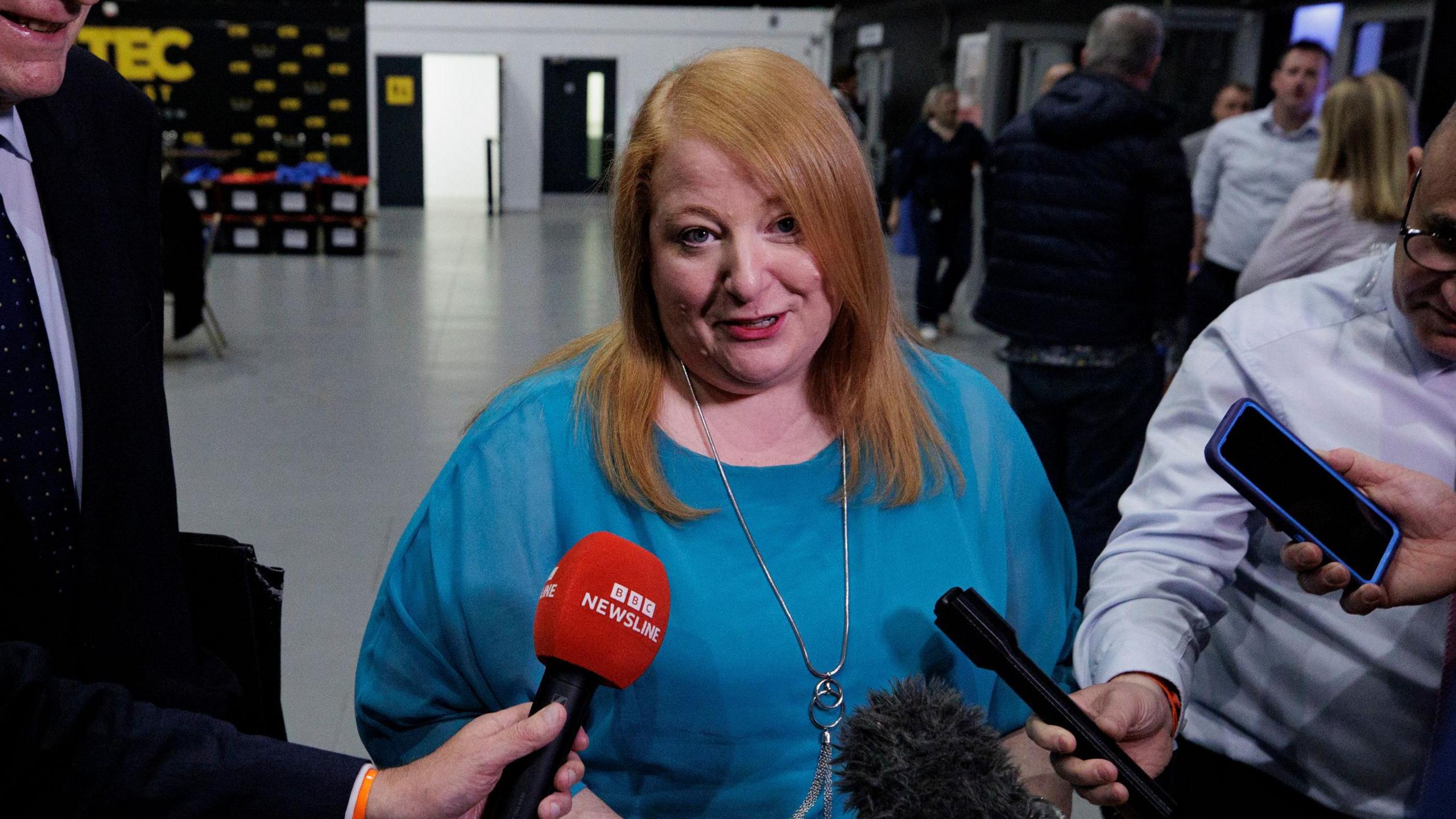
Alliance leader Naomi Long's high-profile contest against DUP leader Gavin Robinson fell flat
But in Belfast East, Alliance leader Naomi Long's high-profile fourth contest against the DUP fell flat.
In terms of votes, Alliance remains firmly Northern Ireland's third-largest party.
But the different results may lead to some debate over whether the so-called 'Alliance surge' since 2019 has stalled.
SDLP retains its two seats
The Social Democratic and Labour Party (SDLP) will be pleased to have retained its two seats, albeit with reduced majorities.
As the tremors of this election settle, there will be much for the parties to digest in these results.
Northern Ireland has nine nationalist MPs, eight unionists and one undecided on the constitutional question - the same as last time.
Opinion polls suggest no majority support for the prospect of Northern Ireland leaving the UK to join with the Republic of Ireland.
But with Sinn Féin in the top spot, debate over an Irish unity referendum may grow louder.
- Published5 July 2024
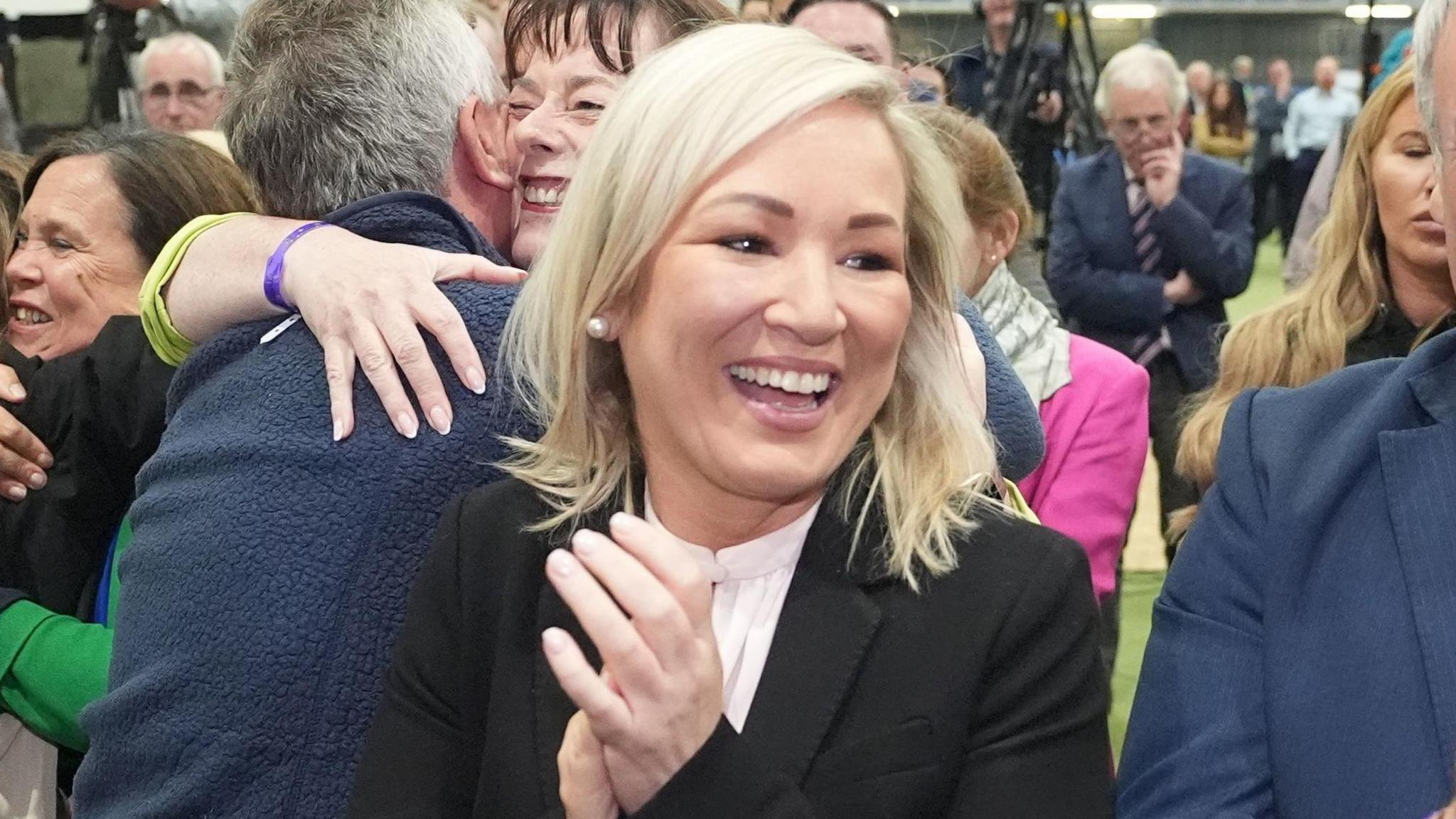
- Published5 July 2024
